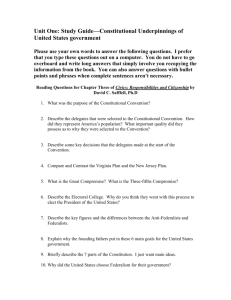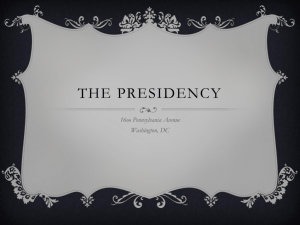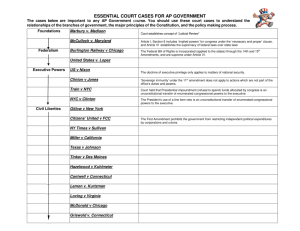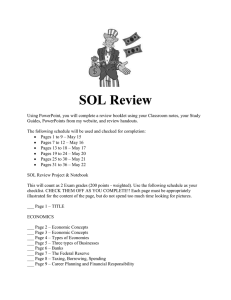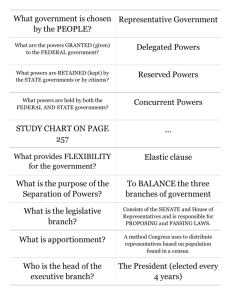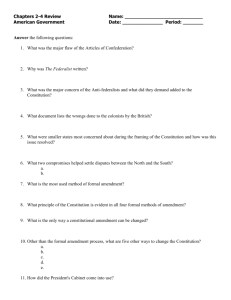Unit 1 (Chapters 1-4) Study Guide American Government Ponder, G
advertisement
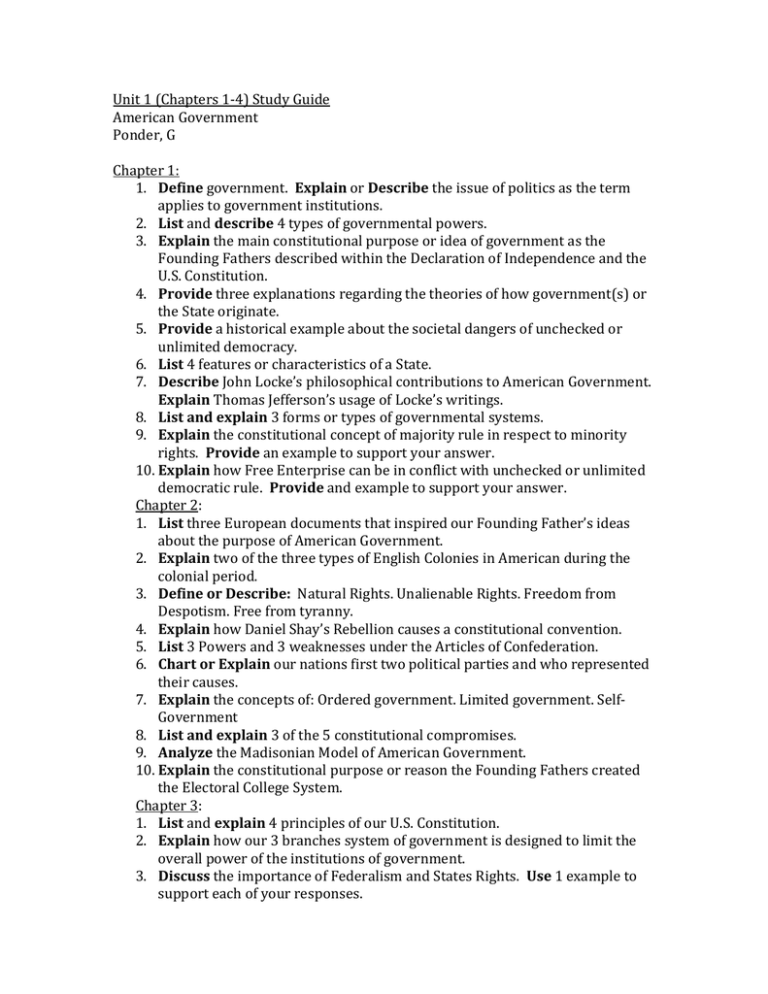
Unit 1 (Chapters 1-4) Study Guide American Government Ponder, G Chapter 1: 1. Define government. Explain or Describe the issue of politics as the term applies to government institutions. 2. List and describe 4 types of governmental powers. 3. Explain the main constitutional purpose or idea of government as the Founding Fathers described within the Declaration of Independence and the U.S. Constitution. 4. Provide three explanations regarding the theories of how government(s) or the State originate. 5. Provide a historical example about the societal dangers of unchecked or unlimited democracy. 6. List 4 features or characteristics of a State. 7. Describe John Locke’s philosophical contributions to American Government. Explain Thomas Jefferson’s usage of Locke’s writings. 8. List and explain 3 forms or types of governmental systems. 9. Explain the constitutional concept of majority rule in respect to minority rights. Provide an example to support your answer. 10. Explain how Free Enterprise can be in conflict with unchecked or unlimited democratic rule. Provide and example to support your answer. Chapter 2: 1. List three European documents that inspired our Founding Father’s ideas about the purpose of American Government. 2. Explain two of the three types of English Colonies in American during the colonial period. 3. Define or Describe: Natural Rights. Unalienable Rights. Freedom from Despotism. Free from tyranny. 4. Explain how Daniel Shay’s Rebellion causes a constitutional convention. 5. List 3 Powers and 3 weaknesses under the Articles of Confederation. 6. Chart or Explain our nations first two political parties and who represented their causes. 7. Explain the concepts of: Ordered government. Limited government. SelfGovernment 8. List and explain 3 of the 5 constitutional compromises. 9. Analyze the Madisonian Model of American Government. 10. Explain the constitutional purpose or reason the Founding Fathers created the Electoral College System. Chapter 3: 1. List and explain 4 principles of our U.S. Constitution. 2. Explain how our 3 branches system of government is designed to limit the overall power of the institutions of government. 3. Discuss the importance of Federalism and States Rights. Use 1 example to support each of your responses. 4. Chart Article V: The Formal Amending Process. 5. Explain 1 example of informal legislative power. 6. Explain 1 example of informal executive power. 7. Explain 1 example of informal judicial power. 8. Provide an example of one 1st amendment limitation. 9. Provide an example of one 2nd amendment limitation. 10. Provide an example of one 4th amendment limitation. 11. Provide an example of one 5th amendment limitation. 12. Provide an example of one 6th amendment limitation. 13. Provide an example of one 7th amendment limitation. 14. Provide an example of one 9th amendment limitation. 15. Provide an example of one 10th amendment limitation. Chapter 4: 1. Explain why our nation’s founding fathers favored stronger states rights over federal powers. 2. List 5 delegated powers of the federal government. OR Explain how delegated powers were originally intended to limit federal power. 3. Explain the concept of the 10th amendment in relation to federal delegated powers. Use an example to support your answer. 4. Chart or list 3 concurrent powers. Explain how concurrent powers operate. 5. Analyze the local governments relationship to federal and state government in terms of revenue and spending. Use one of the following examples: Detroit, Prichard or Jefferson County municipal bankruptcies. 6. Explain the phrase “Republican Form of Government”. Use an example to support your answer. 7. Explain the difference between annexation of a state and the enabling act. 8. Provide 2 examples of cooperative federalism and explain how they operate. 9. List and explain 3 types of federal grants-in-aid. 10. Explain how Article IV relates to Colorado’s legalization of marijuana and the federal war on drugs. 11. Explain how Article IV relates to the following terms: Full Faith and Credit Clause, Extradition, Privileges and Immunities. Use 1 example to support each of your answers.

